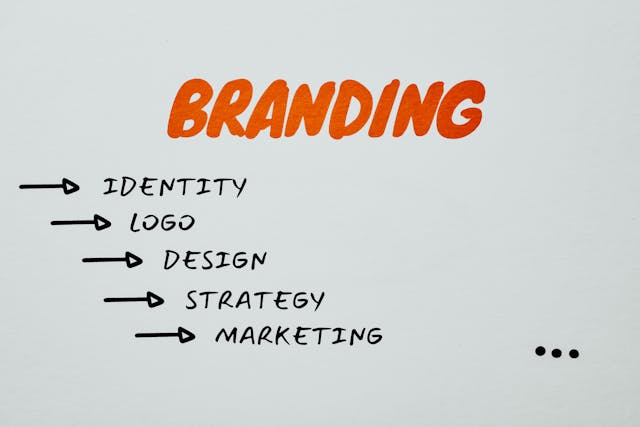10 Startup Marketing Strategies for Launching on a Shoestring

Launching a startup is an exhilarating experience filled with endless possibilities. As an entrepreneur, you have poured your heart and soul into developing a groundbreaking product or service that you are certain will change the world. But there’s one crucial aspect that can make or break your startup’s success – marketing.
Marketing is the fuel that propels your business forward, helping you to attract customers, generate leads, and build brand awareness. However, allocating funds for marketing can be a real challenge for SaaS startups operating on a limited budget. The age-old question of “how much should a startup spend on marketing?” lingers, leaving many founders scratching their heads in search of a sustainable solution.
Whether you are a B2B startup or looking for innovative marketing solutions, we’ve got you covered. So, let’s dive in and discover how to maximize your marketing efforts and propel your startup towards success.
Building Your Brand Identity: Key Steps for Startup Marketing
Establishing a solid brand identity is crucial for success in the competitive startup marketing world. It becomes even more important to stand out, especially for fintech startups, whose market is rapidly expanding. But how can you build your brand identity effectively, especially with a limited marketing budget?
First, defining your target audience and understanding their needs and pain points is essential.
This knowledge will help you tailor your messaging and positioning to resonate with your customers. Conduct thorough market research to uncover your target market’s demographics, preferences, and challenges. This will allow you to develop targeted marketing campaigns that speak directly to your customers’ needs.
Next, focus on creating a consistent brand image across all touchpoints.
Your logo, website, social media profiles, and marketing materials should all reflect the same visual identity and voice. Consistency builds trust and credibility, making it easier for your target audience to recognize and connect with your brand. Invest time and effort in designing a visually appealing and user-friendly website, as it serves as potential customers’ first impression of your brand.
Networking and partnerships are vital for establishing your brand identity, especially for B2B fintech startups.
Attend industry conferences, join professional organizations, and engage with relevant online communities to build relationships with potential clients and partners. Collaborating with trusted industry influencers can help enhance your brand’s credibility and expand your reach.
Lastly, leverage digital marketing channels and tactics that offer a high return on investment.
Social media advertising, content marketing, and search engine optimization can provide cost-effective ways to reach your target audience. These strategies allow you to create engaging content and promote your brand, even with limited resources.
In conclusion, building a solid brand identity for your startup requires careful planning, consistent messaging, strategic partnerships, and leveraging cost-effective marketing tactics. By understanding your target audience, creating a visually appealing brand image, networking with industry professionals, and utilizing digital marketing channels, you can establish a solid brand identity and stand out in the competitive startup landscape.

Navigating the Digital Landscape: Online Marketing Strategies for Startups
Having a solid online presence is important for startups to succeed. However, navigating the digital marketing world can be overwhelming, especially for those with limited experience in the field. This is where a digital marketing agency for startups can be a game-changer.
A startup marketing agency specializes in helping startups build and establish their online presence through strategic digital marketing efforts. From search engine optimization (SEO) to social media marketing and content creation, these agencies offer comprehensive services to drive brand awareness, increase website traffic, and generate leads.
One common concern for startups is the cost of marketing. While there is no one-size-fits-all answer to the question “How much does marketing cost for a startup?” working with a startup marketing agency can provide startups with cost-effective solutions. These agencies understand many startups’ financial constraints and can provide tailored packages that fit within their budget while still delivering impactful results.
Navigating the digital landscape can be challenging for startups, but finding the right digital marketing agency can simplify the process and lead to online success. With their expertise and knowledge in online marketing strategies, a startup marketing agency can help startups gain a competitive edge in the digital world and thrive in their respective industries. So, if you’re a startup looking to make a mark online, consider partnering with a digital marketing agency to navigate the digital landscape and achieve your business goals.

Harnessing the Power of Social Media for Startup Growth
Harnessing social media’s power is vital for startups’ growth and success. With the increasing use and influence of platforms like Facebook, Twitter, Instagram, and LinkedIn, entrepreneurs can connect with their target audience and promote their brands like never before.
By leveraging social media platforms, startups can create engaging content, interact with potential customers, and build a solid online presence that distinguishes them from their competitors.
When marketing startup companies , it’s crucial to understand the target audience and tailor marketing strategies accordingly. With social media, startups can conduct market research, identify customers’ preferences, and refine their marketing approach. By utilizing analytics tools and studying user behavior, startups can measure the impact of their marketing campaigns and make data-driven decisions for continuous improvement.
Social media marketing is particularly effective for SaaS (Software as a Service) startups in building brand awareness and driving customer acquisition. Through compelling content, informative videos, and targeted advertising, SaaS startups can showcase their unique value proposition and attract potential customers who need their software solution.
Overall, social media has revolutionized how startups market themselves, providing affordable and impactful opportunities for growth. By creating a solid digital marketing strategy and leveraging the power of social media, startups can establish their brand, connect with their audience, and drive business growth in today’s competitive market.

Content is King: Creating Compelling Marketing Materials for Startups
Content is king in startup marketing. Creating compelling marketing materials has become essential for startup success with the ever-increasing competition.
Content marketing for startups involves developing and distributing valuable, relevant, and consistent content to attract and retain a target audience. It is about creating a solid online presence by showcasing your startup’s expertise and uniqueness. By consistently delivering high-quality content, you can establish your startup as a thought leader in the industry, gaining trust and credibility among potential customers.
To effectively carry out content marketing for startups, it is crucial to enlist the help of a startup marketing firm experienced in digital marketing. They have the expertise and resources to help you identify your target audience and create tailored content that resonates with them. From developing engaging blog posts to creating informative videos and visually appealing infographics, a startup marketing firm can assist in crafting compelling marketing materials that grab attention and generate leads.
Digital marketing for startups also involves distributing content on various online platforms and channels. From social media platforms like Facebook, Instagram, and LinkedIn to email marketing and search engine optimization (SEO), these strategies can help boost your startup’s visibility, attract organic traffic to your website, and ultimately drive conversions.
In conclusion, content marketing is a powerful tool for startups to build brand awareness and engage with their target audience.
Networking Essentials: Leveraging Connections for Startup Marketing Success
Networking has become an essential tool for startup success. The days of relying solely on traditional advertising methods are long gone; startups must tap into their networks to create effective and efficient marketing campaigns.
Startup digital marketing utilizes various online platforms and channels to showcase the company’s unique offerings. By leveraging connections through networking, startups can gain access to a broader audience and significantly increase their chances of success. Whether attending industry conferences, joining relevant online communities, or reaching out to key influencers, networking allows startups to establish valuable relationships that can open doors to new opportunities.
In conclusion, networking is a critical aspect of fintech startup marketing . Startups must understand the importance of leveraging connections to create successful marketing campaigns. By tapping into their networks and using online platforms effectively, startups can reach a broader audience and gain traction in the competitive fintech industry, even with limited marketing budgets. So, for any startup looking to make an impact, it’s time to harness the power of networking to achieve marketing success.
Data-Driven Decisions: Using Analytics to Optimize Startup Marketing
In the world of startups, making data-driven decisions has become crucial for success. Nowhere is this more evident than in marketing. SaaS startup marketing , in particular, requires a strategic approach that leverages the power of analytics to reach the right audience, drive conversions, and optimize budget allocation.
Gone are the days when startups relied on gut feelings and guesswork to develop marketing strategies. With the advent of technology and the abundance of data available, marketers can now tap into various analytics tools to gain valuable insights. By analyzing user behavior, demographics, and preferences, startups can create targeted campaigns that resonate with their audience and yield higher ROI.
Leveraging analytics becomes even more crucial for a digital marketing agency startup . With many clients and campaigns to manage, agencies must continuously monitor and optimize their marketing efforts. Analytics tools provide real-time data on campaign performance, allowing agencies to make informed decisions about where to allocate resources and optimize their strategies accordingly.
One key benefit of using analytics in startup marketing is optimizing the budget. SaaS startup marketing budgets often come with constraints, and ensuring every dollar is spent wisely is vital. By closely monitoring metrics such as cost per acquisition, customer lifetime value, and return on ad spend, startups can identify the most effective channels and tactics to invest in. This data-driven approach ensures that marketing efforts focus on activities that generate the highest returns, maximizing the budget’s impact.
By embracing analytics, SAAS startup marketing and digital marketing agency startups can gain a competitive edge, drive better results, and make the most of their marketing budgets. From targeting the right audience to optimizing campaigns, analytics is key to success in the ever-evolving startup marketing world.
Maximizing ROI: Budget-Friendly Advertising Tactics for Startups
Regarding advertising, startups often find themselves in a difficult position. On one hand, they recognize the importance of marketing their brand and attracting customers. On the other hand, they have limited resources and need to maximize their return on investment (ROI). So, how can startups navigate this challenge and effectively promote their brand without breaking the bank?
The first step is to determine a realistic marketing budget for your startup.
While there is no one-size-fits-all answer to the question, “How much does marketing cost for a startup?” Allocating a portion of your funds to advertising is essential. Analyze your financial situation and consider factors such as industry norms, target audience, and growth goals to reach a feasible number for your business.
Next is cost-effective advertising tactics. One strategy is to focus on digital marketing.
Start by building a solid online presence through social media platforms, a well-designed website, and search engine optimization. These tactics can drive organic traffic and generate leads without significant financial investment.
Another budget-friendly tactic is to leverage the power of partnerships and collaborations.
Identify other businesses or influencers in your industry with a similar target audience and explore opportunities to collaborate on joint marketing efforts. This can involve cross-promotions, guest blogging, or co-hosting events. By sharing resources and reaching a wider audience, you can maximize your advertising reach while minimizing costs.
Maximizing ROI for your startup’s advertising efforts requires strategic planning, resource allocation, and creativity. By setting a realistic marketing budget, focusing on cost-effective digital tactics, and exploring collaborative opportunities, you can effectively promote your brand without breaking the bank. Start-up marketing enablement is about maximizing your resources to achieve your growth goals.
SEO Fundamentals: Driving Organic Traffic to Your Startup
In the fiercely competitive world of startups, one thing is sure: you need a steady flow of organic traffic to survive and thrive. This is where SEO, or Search Engine Optimization, comes into play. By optimizing your website and content for search engines, you can ensure that your startup is visible to potential customers and investors.
One key component of a successful SEO strategy is content marketing for startups. Creating high-quality, informative content that resonates with your target audience helps boost your search engine rankings and establishes your startup as a thought leader in your industry. Consider hiring a startup marketing consultant or working with a startup marketing company to develop a content marketing strategy that aligns with your business goals.
Regarding SEO, it’s important to remember that it’s not just about stuffing keywords into your website. Search engines value relevance and user experience. Your website should be easily navigable, with well-structured pages and mobile-friendly design. Additionally, incorporating relevant keywords in your meta tags, headings, and content can help search engines understand what your startup is all about.
Lastly, building high-quality backlinks is crucial for improving your search engine rankings. The more reputable websites that link back to your startup’s site, the better your chance of appearing higher in search results. Focus on creating valuable content that others naturally want to link to and engage in outreach activities to earn backlinks from industry influencers and publications.
In conclusion, SEO is fundamental to driving organic traffic to your startup. Investing in content marketing, optimizing your website, and building high-quality backlinks can increase your startup’s visibility and attract valuable traffic to your site. Consider consulting with experts in startup marketing to develop a comprehensive SEO strategy that aligns with your business objectives.
Cultivating Customer Loyalty: Strategies for Retaining Startup Clients
Cultivating customer loyalty is crucial for the success of any business, especially startups. Building a solid base of loyal customers can lead to repeat business, positive word-of-mouth recommendations, and increased revenue. So, how can startups retain their clients in today’s competitive market? One effective strategy is developing a robust marketing strategy tailored to e-commerce startups.
Digital marketing plays a crucial role in attracting and retaining customers for startups. By leveraging various online channels, startups can reach a wider audience and effectively communicate their value proposition. From social media platforms to email marketing campaigns, the options are endless. Utilizing targeted ads and personalized content can help create a connection with customers, build loyalty, and drive engagement.
To stand out from the competition, startups should also focus on creating memorable and impactful marketing campaigns. By thinking outside the box and taking risks, startups can capture the attention of their target audience and leave a lasting impression. Remember the Dollar Shave Club’s viral video? It garnered millions of views and turned the company into a household name. By embracing creativity and originality, startups can significantly impact a smaller budget.
In addition to these strategies, startups need to prioritize customer satisfaction. Providing exceptional customer service and promptly addressing any issues or concerns can go a long way in winning customer loyalty. Startups should actively seek feedback from their clients and use it to improve their products and services continuously. By listening and responding to their customers, startups can create a sense of trust and loyalty.
In conclusion, an effective marketing strategy is crucial for cultivating customer loyalty. By harnessing the power of digital marketing, creating impactful campaigns, and prioritizing customer satisfaction, startups can retain their clients and thrive in today’s competitive market. So, consider the importance of these strategies and start implementing them today to build a loyal customer base for your startup.

Innovating for Impact: Creative Marketing Approaches for Startups
Startups constantly seek innovative ways to make an impact and stand out. This is especially true when it comes to marketing their products or services. With limited resources and tight budgets, startups need to think outside the box and find creative marketing approaches that generate maximum impact for minimum cost.
One of the biggest challenges for startups is the average marketing cost.
Traditional marketing channels, such as print advertising or TV commercials, can be prohibitively expensive, making them unrealistic options for startups with limited funds. However, with the rise of digital marketing, more cost-effective alternatives are now available. Tech startup marketing often leverages the power of social media platforms and online advertising to reach a wider audience at a fraction of the cost. By targeting specific demographics and utilizing data-driven insights, startups can maximize their marketing efforts and get more bang for their buck.
Another practical approach for startups is content marketing.
By creating and sharing valuable and relevant content, startups can establish themselves as industry thought leaders and build a loyal customer base. This can be done through blog posts, videos, podcasts, or social media content that educates, entertains, or inspires the target audience. The key to successful startup content marketing lies in understanding the pain points and needs of the target market and providing solutions or insights that resonate with them. This helps build brand credibility, generates organic traffic, and leads to potential customers.
Dreaming is important, but action is crucial
Every incredible journey begins with that initial step. Achieving business success hinges on securing that first customer, seizing the first sales opportunity, engaging with the first prospect, capturing the initial lead, and attracting the first visitor.
While envisioning the end goal is essential, nothing surpasses the significance of taking that first leap. Best of luck on your startup journey, and don’t hesitate to reach out if you need assistance brainstorming ideas or solidifying plans.
Keep hustling!!!

 11 min read
11 min read









